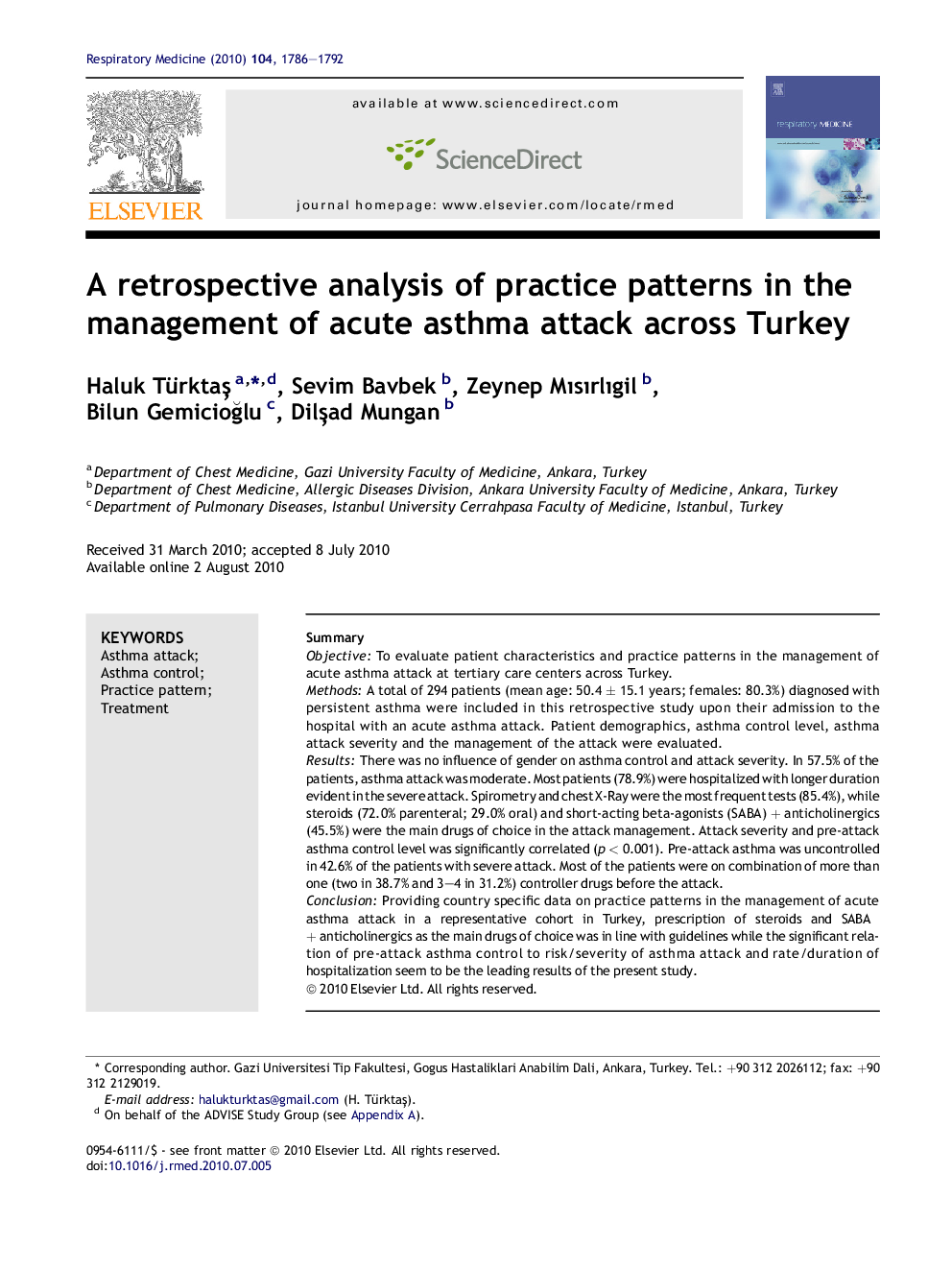| Article ID | Journal | Published Year | Pages | File Type |
|---|---|---|---|---|
| 4211614 | Respiratory Medicine | 2010 | 7 Pages |
SummaryObjectiveTo evaluate patient characteristics and practice patterns in the management of acute asthma attack at tertiary care centers across Turkey.MethodsA total of 294 patients (mean age: 50.4 ± 15.1 years; females: 80.3%) diagnosed with persistent asthma were included in this retrospective study upon their admission to the hospital with an acute asthma attack. Patient demographics, asthma control level, asthma attack severity and the management of the attack were evaluated.ResultsThere was no influence of gender on asthma control and attack severity. In 57.5% of the patients, asthma attack was moderate. Most patients (78.9%) were hospitalized with longer duration evident in the severe attack. Spirometry and chest X-Ray were the most frequent tests (85.4%), while steroids (72.0% parenteral; 29.0% oral) and short-acting beta-agonists (SABA) + anticholinergics (45.5%) were the main drugs of choice in the attack management. Attack severity and pre-attack asthma control level was significantly correlated (p < 0.001). Pre-attack asthma was uncontrolled in 42.6% of the patients with severe attack. Most of the patients were on combination of more than one (two in 38.7% and 3–4 in 31.2%) controller drugs before the attack.ConclusionProviding country specific data on practice patterns in the management of acute asthma attack in a representative cohort in Turkey, prescription of steroids and SABA + anticholinergics as the main drugs of choice was in line with guidelines while the significant relation of pre-attack asthma control to risk/severity of asthma attack and rate/duration of hospitalization seem to be the leading results of the present study.
